Are you a student navigating the complexities of mental health challenges? You're not alone, and seeking support is a vital step towards wellness. In this article, we'll explore a helpful letter template that can guide you in applying for mental health support, ensuring your voice is heard. Dive in to discover how to effectively communicate your needs and access the resources available to you!
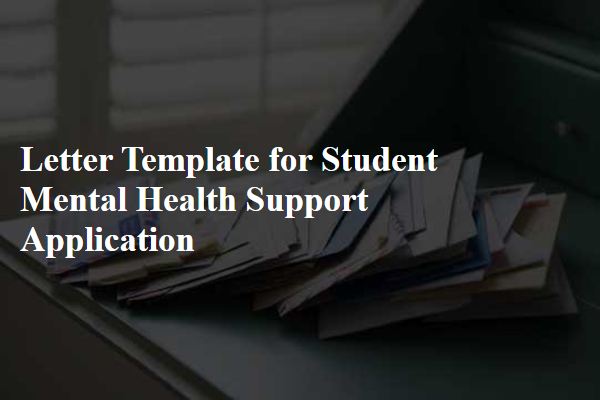
Personal Information: Name, Student ID, Contact Details
A mental health support application for students includes essential personal information such as the student's full name, unique student identification number (Student ID), and accurate contact details like email addresses and phone numbers. This information is crucial for ensuring effective communication between outreach counselors and students. Student IDs (often assigned by educational institutions) help in verifying the identity and enrollment status of students seeking assistance. Contact details allow for quick responses to support requests and facilitate ongoing communication regarding mental health resources, workshops, and counseling sessions available locally, including campus counseling centers and external mental health organizations.
Statement of Purpose: Reason for Seeking Support
A student's mental health can significantly influence academic performance and overall well-being, particularly in high-pressure environments like universities or colleges. Many students experience anxiety, depression, or stress-related issues, impacting their ability to concentrate and succeed in coursework. Factors such as rigorous academic schedules, social dynamics, and financial pressures can exacerbate these challenges. Seeking mental health support is crucial for addressing these concerns, fostering resilience, and enhancing emotional intelligence. Institutions often provide counseling services, peer support groups, and workshops aimed at improving coping strategies. Access to these resources can empower students to navigate their mental health journeys while maintaining their academic commitments effectively.
Documentation: Any Relevant Medical/Professional Reports
Mental health support applications often require comprehensive documentation to ensure proper evaluation and assistance. Relevant medical reports from licensed professionals, including psychologists or psychiatrists, play a critical role in the assessment of a student's mental health needs. This documentation may encompass diagnoses, treatment plans, and therapeutic recommendations that outline the necessary accommodations or services. Formally structured reports often include details such as the clinician's credentials, dates of consultation, and observed symptoms. Additionally, professional evaluations could discuss the impact of mental health challenges on academic performance and social interactions, highlighting the necessity for support programs within educational institutions.
Support Required: Specific Needs or Accommodations
Students experiencing mental health challenges may require tailored support to foster academic success. Common accommodations include extended test-taking time, allowing for quiet testing environments, and providing access to mental health resources on campus, such as counseling services at local health centers. Individualized Education Plans (IEPs) may also address specific needs, ensuring access to tutors or academic coaches. Additionally, flexibility in attendance policies can help students manage their conditions effectively, allowing them to prioritize mental well-being while maintaining academic requirements. Implementing these accommodations helps create an inclusive educational environment that promotes both mental health and academic achievement.
Contact and Follow-up: Preferred Communication Method and Availability
A student's mental health support application should include a section dedicated to contact and follow-up preferences to ensure effective communication. Students can specify their preferred communication method, such as email (inbox@school.edu or similar platforms) or phone calls (contact number), facilitating timely responses. Indicating availability is crucial; students should mention specific days and times, for instance, weekdays between 2 PM and 5 PM, when they are accessible for follow-up conversations. This tailored approach enhances support staff's ability to connect with students, fostering a more responsive mental health care environment within academic institutions.
Letter Template For Student Mental Health Support Application Samples
Letter template of inquiry regarding mental health resources for students
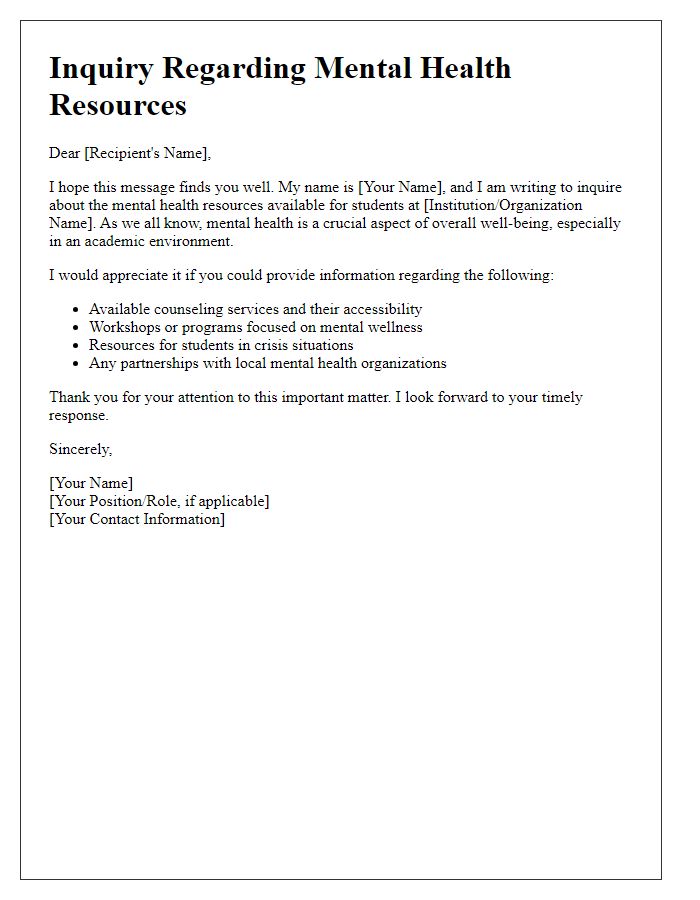
Letter template of documentation for accessing student mental health care
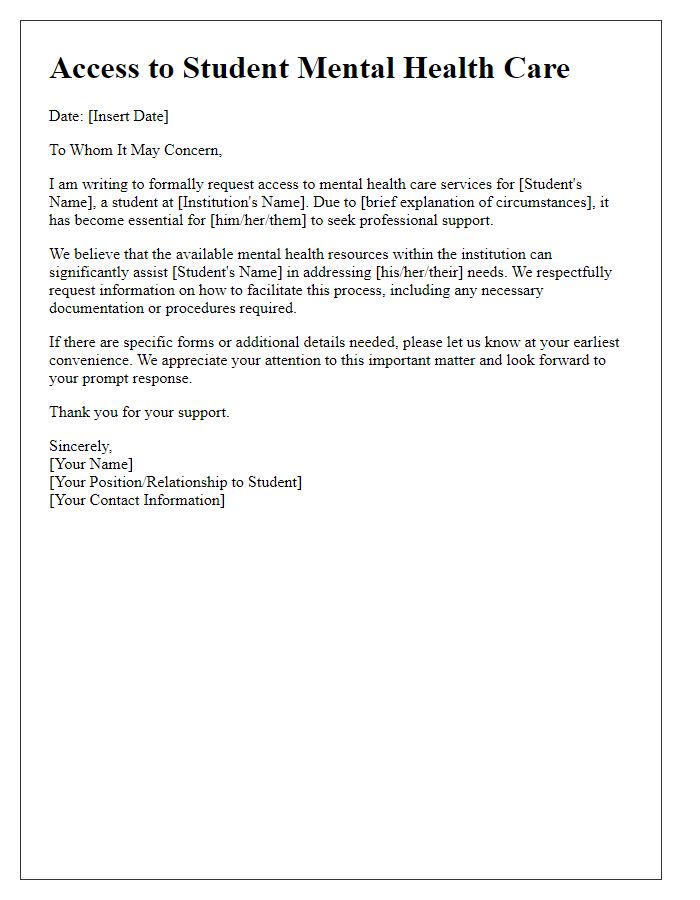
Letter template of submission for support with student mental health challenges
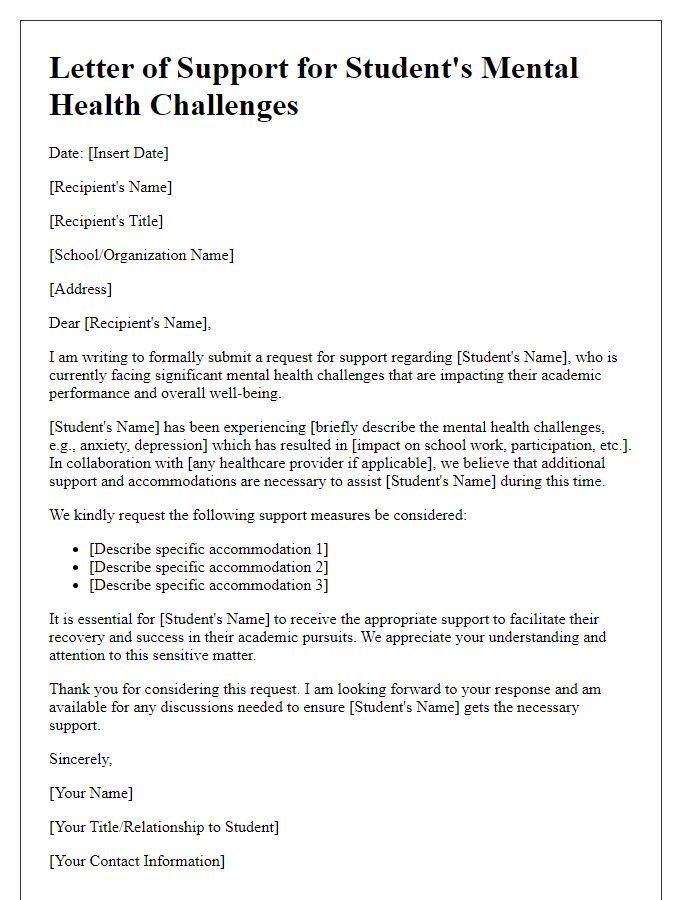

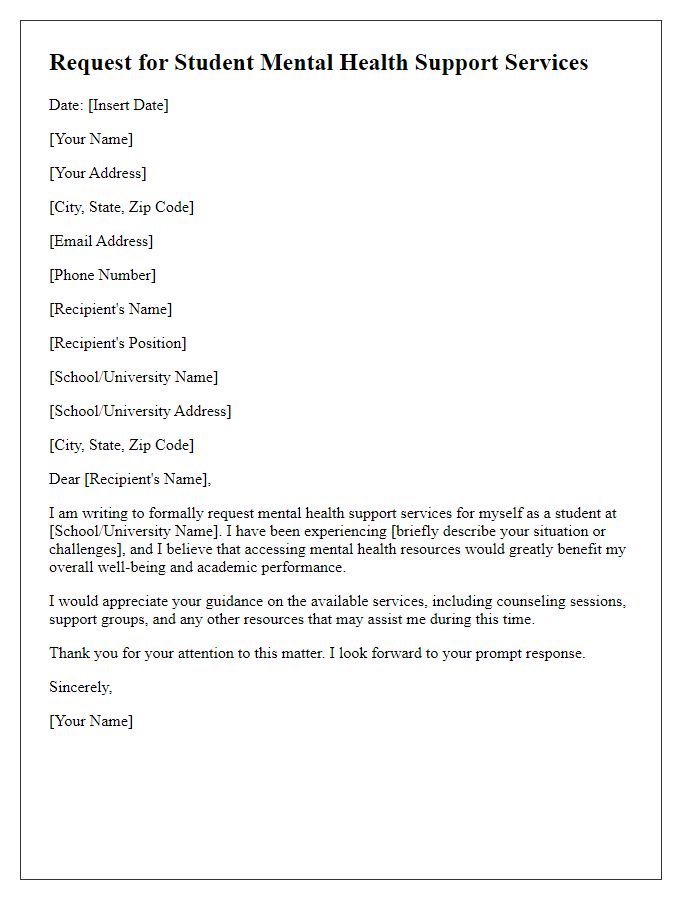
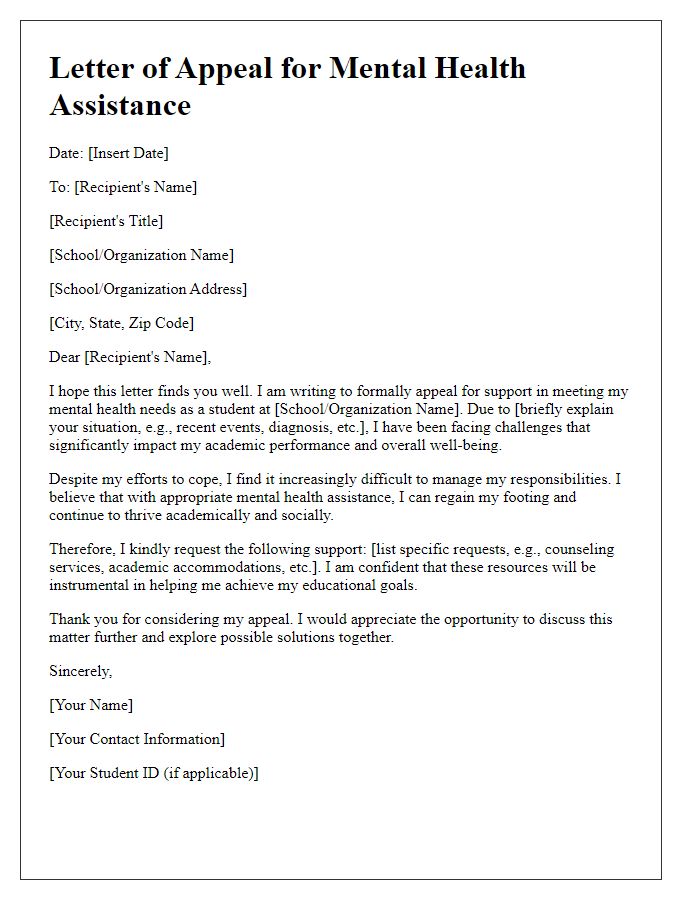
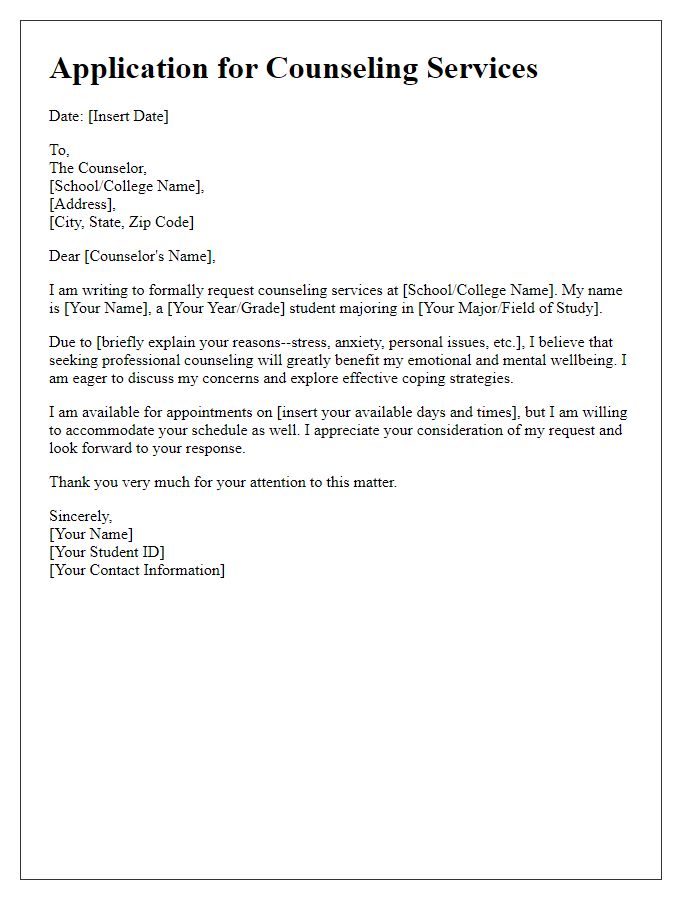
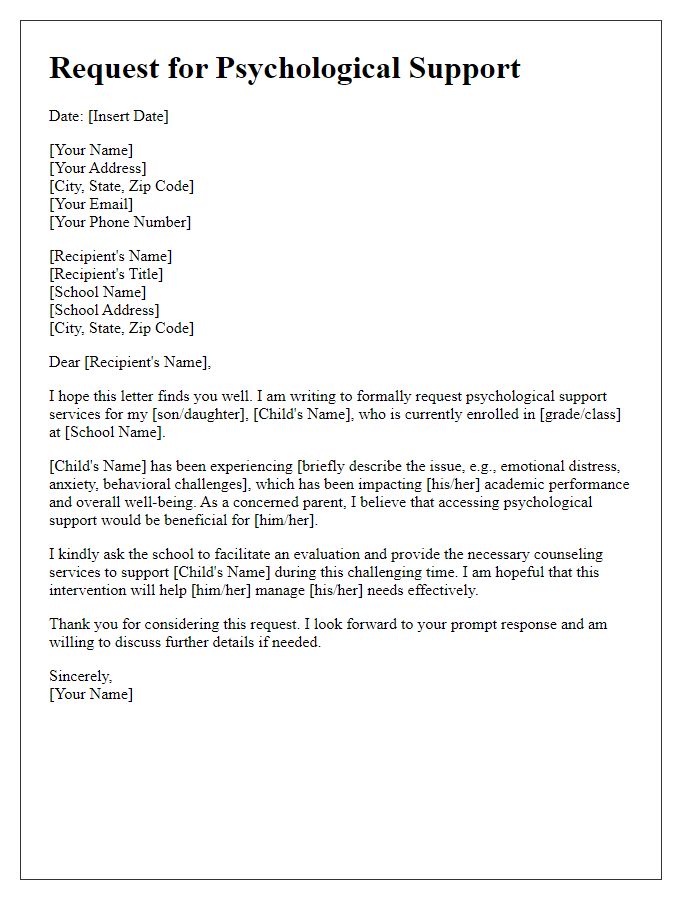
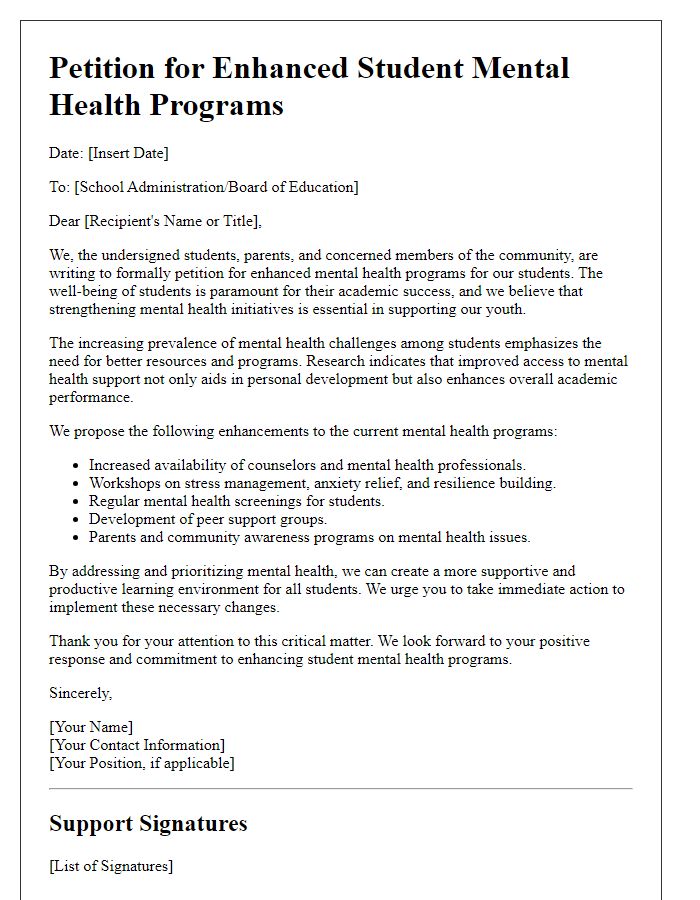
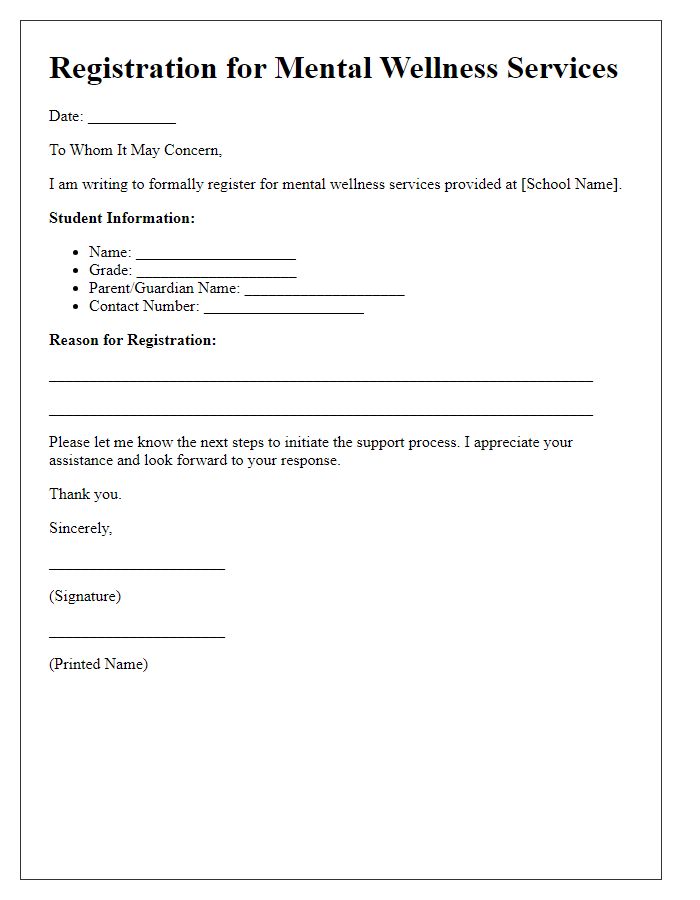
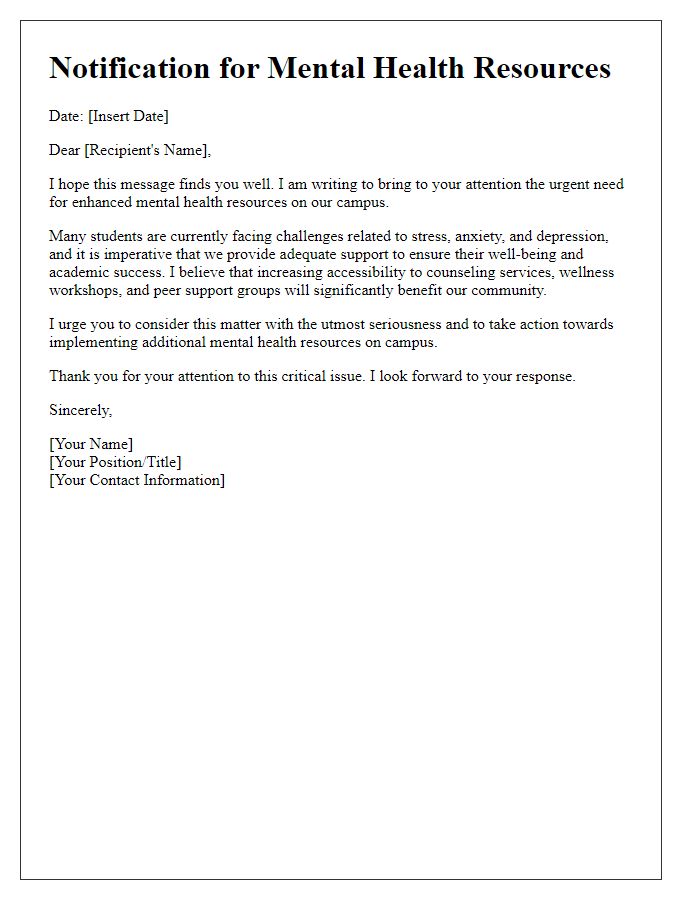

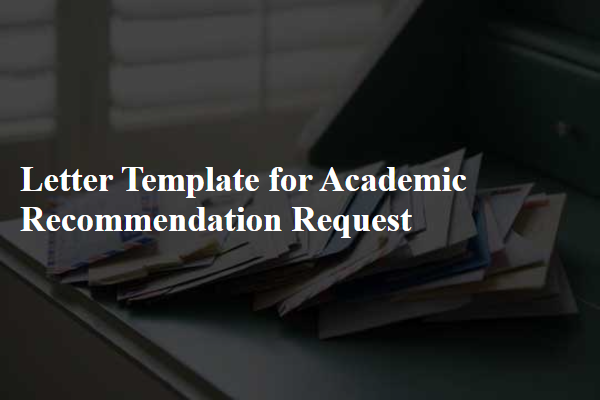
Comments